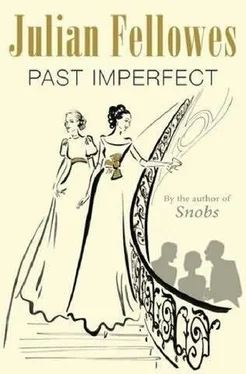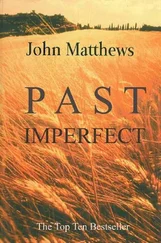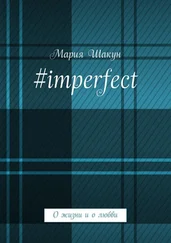‘What was it, then?’
She sighed, still sorry. ‘He didn’t want it.’ She frowned, anxious to qualify her statement. ‘I mean he liked me a bit and he was quite amused by all the… stuff. But he never fancied me. Not really.’ Of course, the sad truth was that none of us had fancied her. Not, at any rate, what Nanny would describe as in that way, she was too much of a waif, too much the loveless, pitiful child, but at her words I was struck with a wave of pity for our younger selves, bursting with unrequited love, as all we plain ones had been. Aching to tell, somehow believing that if only the object of our passions could be brought to understand the force of our love, they would yield to it, yet knowing all the time that this is not so and they would not.
Dagmar hadn’t finished. ‘There was a moment when I thought I could have him. At one particular point I thought I could promise him everything he was doing the Season to get. Social…’ She hesitated. She had been so carried away that it had led her into territory that made her awkward. Her timid diffidence came flooding back. ‘You know… social whatever… I thought he might want it enough to take me as part of the deal.’ She looked across. ‘I suppose that sounds very desperate.’
‘It sounds very determined. I’m surprised it didn’t work.’ I was. Whether he found her attractive or not, I would have thought the Damian Baxter of those years would have leaped at the chance of a princess bride.
Now it was her turn to look at me pityingly. ‘You never understood him. Even before that terrible dinner in Portugal. You thought he wanted everything you had. More than you had. Which he did, in a way. But at some moment during the year we spent together he realised he only wanted it on his own terms or not at all.’
‘Perhaps that’s what you admire in men. William certainly has it on his own terms.’ Which could have been cruel but she did not take it as such.
Instead, she shook her head to mark the difference in her mind between the two men. ‘William is a little man. He married me to be a big man. Then, when he had made his own money and bought a knighthood, and generally became, as he thought, big, he didn’t want me to be big as well any more. He wanted me to be little, so he could be even bigger.’ I cannot tell you how sad these words were, as I listened to her far-back, 1950s Valerie Hobson voice issuing from her minute frame. She looked so breakable. ‘He thinks as long as he ridicules my birth and criticises my appearance, and yawns whenever I open my mouth, he can demonstrate that I am the one who needs him and not the other way round.’
‘He still buys portraits of your ancestors.’
‘He doesn’t have much choice. If we waited for his to come up we’d have to live with bare walls.’ It was nice to hear her being waspish.
‘Why don’t you leave him?’ It is hard to explain quite why, but this was not as intrusive a question at the time as it seems on the page.
She thought for a moment. ‘I don’t entirely know. For a long time it was the children, but they’re not children now. So I don’t know.’
‘How many are there?’
‘Three. Simon’s the eldest. He’s thirty-seven, working in the City. Gone.’
‘Married?’
‘Not yet. I used to wonder if he might be gay. I wouldn’t mind, but I don’t think he is. I suspect it’s more that he’s been put off the institution by his parents’ example. Then there’s Clarissa, who’s happily married to a successful and very nice paediatrician, I’m glad to say, even if William doesn’t approve.’
‘Why not?’
‘He would have preferred a stupid peer to a clever doctor.’ She sighed. ‘And finally our youngest, Richard, who’s only twenty-four and starting out in corporate entertainment.’ She paused, reflecting on her own words. ‘Don’t the young have funny jobs now?’
‘Not like our day.’
She looked at me. ‘Well, you went into a funny job. None of us thought you’d make a living. Did you realise that?’
‘I suspected it. Just as I always expected you to do something surprising.’ I only said this to cheer her up, but in a way it may have been true. To me, she had been a bit of a wild card, so retiring, so minor key, with her giggles and her long silences, that I used sometimes to have a sense that there was a completely different person living inside this shy and weeny head, even if I never investigated it at the time. I half expected the day to come when she’d break loose. Somehow it didn’t seem possible that she would just slide into that Sloane life of buying school uniforms and cooking for the freezer in some provincial Aga kitchen.
Obviously, Dagmar found the idea of herself as a career girl rather flattering. ‘Really? Very few of us did anything very spectacular. Rebecca Dawnay composes film music now and didn’t Carla Wakefield open a restaurant in Paris? Or am I muddling her with someone?’ She was combing her brain, ‘I know one of the London editors is a former deb, but I forget which one…’ she sighed. ‘Anyway, that’s about it.
‘Even so.’ I had quite recovered from my initial bewilderment at her unfamiliar appearance. Now Dagmar looked like herself again and it brought the memories rushing back. ‘Do you remember in Portugal, on the first night? When we took a picnic to that haunted castle on the hill and talked about life? You sounded like someone plotting a break-out. I expect you’ve forgotten.’
‘No, I haven’t forgotten.’ She stopped walking, as if to punctuate her sentence. ‘I think you’re right and I was planning something of the kind. But I got pregnant.’ We had all known this, of course, in the unspoken way such news was received in those distant days, so I didn’t comment. ‘William asked me to marry him and, whatever you think of him now, I was pretty relieved at the time I can tell you. Anyway, then Simon arrived and that was that.’
We were nearly back at the house by this time and I needed some answers. ‘When did you give up on Damian?’
Her muscles tensed and her face took on the look of a nervous chipmunk. I realised the question, or at least the return to 1968, was not at all easy for her, but there was no way round it. I waited while she composed her reply. ‘I gave up on him when he didn’t propose to me and William did.’ She hesitated. ‘The truth is, though I hardly know how to say it,’ she blushed again, but clearly she had decided that she was too far in to back out now, ‘either of them could have been the baby’s father. I was going out with William at the time, but Damian and I slept together on the night we arrived in Estoril. I remember it very well because it was the last time that I thought I just might get him. Then, later that same night, he told me it wasn’t going to happen. Ever. That he was fond of me, but…’ She shrugged and suddenly the lonely, heartbroken girl of forty years before was there, walking beside us in the park. ‘After that, when my period was late, I knew that it was either William or the abortion clinic. It’s odd to think of it, given how William behaves to me now, but I cannot describe my relief when he did pop the question.’
‘I’m sure.’ I was.
She gave a sudden shiver. ‘I should have worn a jersey,’ she said. And then, with a shy glance. ‘I don’t know why I told you all that.’
‘Because I was interested,’ I said. Actually, this is quite true. Especially in England. Very few Englishmen ever ask women anything about themselves. They choose instead to lecture their dinner neighbours on a new and better route to the M5, or to praise their own professional achievements. So if a man does express any curiosity about the woman sitting next to him, about her feelings, about the life she is leading, she will generally tell him anything he cares to know.
Читать дальше












